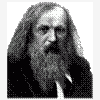I was thinking ... why not make a thread where everyone can put great sites about the periodic table. Here are already some great sites. (**** = EXTREMELY GOOD, *** = VERY GOOD, ** = GOOD, * = NORMAL)
**** http://www.vanderkrogt.net/elements/index.html
Fantastic site !! You will find this site useful not only for the origins (etymology) of element names, but also for translations of each element name into numerous other languages.
**** http://homepage.mac.com/dtrapp/Elements/mineral.html
Origins of the element names. Very nice !!!!
**** http://www.element-collection.com/index.html
The Most Beautiful Periodic Table Displays in the World ! Great site for element collectors.
**** http://www.chemsoc.org/viselements/pages/page3.html
FANTASTIC SITE !! Just visit it !!!!!
**** http://www.theodoregray.com/PeriodicTable/index.html
The Wooden Periodic Table Table ... Yes, it really is a table. What, How, Why ... go check the site !!
*** http://www.chemtopics.com/elements.htm
A periodic table. Information includes a picture of the element (when available), a short background description with some ethymology, and links to other sites containing additional background and data.
*** http://www.ch.cam.ac.uk/misc/weii/
Based on the Best Selling Book THE ELEMENTS ! Periodic table with biological data, geological data, physical data, etc.
*** http://www.chemistrycoach.com/periodic_tables.htm
Huge list of links for periodic tables !!
*** http://soundamerica.com/sounds/comedy/Tom_Lehrer/
*** http://www.casualhacker.net/tom.lehrer/evening.html#elements
Two great sites about Tom Lehrer's Song of The Element. Just Listen and enjoy !!!
*** http://chemlab.pc.maricopa.edu/periodic/default.html
Very nice site with periodic table, and an interavtive table of isotopes
*** http://www.uky.edu/Projects/Chemcomics/
Periodic table : Click on an element to see a list of comic book pages involving that element.
** http://superdeluxe.com/elemental/
Chemistry and poetry together as never before. Curious? Explore the Periodic Table of Elements you know and love — with a twist ! Click on your favorite element for a poem.
** http://genchem.chem.wisc.edu/lab/PTL/PTL/Elements/H/H.html
Periodic Table Live ! Nice, with some movies about the reaction of the elements with air / water / acid / Base
** http://cwx.prenhall.com/petrucci/medialib/media_portfolio/10.html
Some movies and animations illustrating the periodic trends, etc.
** http://www.ch.cam.ac.uk/SGTL/elements/
Periodic table, colored by atomic weight, number of isotopes, melting point, etc.
** http://www.anachem.umu.se/cgi-bin/pointer.exe?PeriodicTables
List of links for Periodic Tables and Related Material.
** http://www.robresint.co.uk/default.asp?section=periodic
A periodic table with quotations on the elements.
** http://www.areopagus.net/grkelements.htm
A table of the elements with mythological influences, or at least have the Greek language to thank for their names ... this site knows all about it.
* http://center.acs.org/periodic/tools/PT.html
A periodic table. Nice Shockwave application.
* http://www.apsidium.com/new_pt/newtab.htm
New periodic table up to element 224
* http://nautilus.fis.uc.pt/st2.5/index-en.html
A periodic table with a bit of history and biographies.
* http://www.monroecc.edu/wusers/flanzafame/ClPerDates.pdf
PDF file : the periodic table, colored by year of discovery
ENJOY
